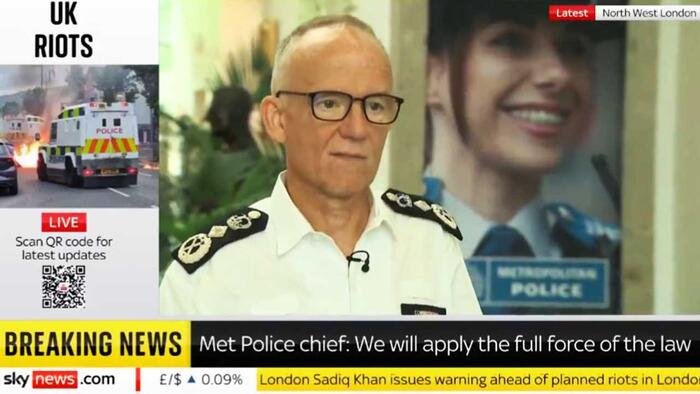The Head of the Met Police, Sir Mark Rowley, has issued a warning that individuals engaging in online incitement of riots could face terrorism charges, even if they are residing outside the UK. In response to recent riots triggered by the tragic murder of three girls at a dance class in Southport, Rowley emphasized that the law would be rigorously enforced against not only those directly involved in the violence but also those making provocative statements on social media.
Rowley’s stern message extended to individuals abroad, as he stated, “And whether you’re in this country committing crimes on the streets or committing crimes from further afield online, we will come after you.” He further highlighted that online actions, such as inciting racial hatred or violence, could result in serious legal consequences, irrespective of the perpetrator’s location.
The discussion surrounding online behavior and its potential legal implications escalated when a Sky News reporter referenced Elon Musk as someone allegedly inciting hatred. However, Rowley clarified that being a “keyboard warrior” did not exempt individuals from legal repercussions, emphasizing the gravity of incitement, racial hatred, and terrorism-related offenses.
With authorities cautioning the public that even retweeting information about the riots could lead to criminal charges, the Director of Public Prosecutions, Stephen Parkinson, emphasized that sharing insulting or abusive content online could constitute incitement to racial hatred. The monitoring of social media for inflammatory material and subsequent arrests underscored the seriousness with which law enforcement agencies are addressing online provocations.
As concerns grow regarding online speech and its potential legal ramifications, it is imperative for individuals to be aware of the boundaries of acceptable behavior on social media platforms. Authorities remain vigilant in identifying and pursuing those who engage in activities that could incite violence or hatred, both online and offline.

